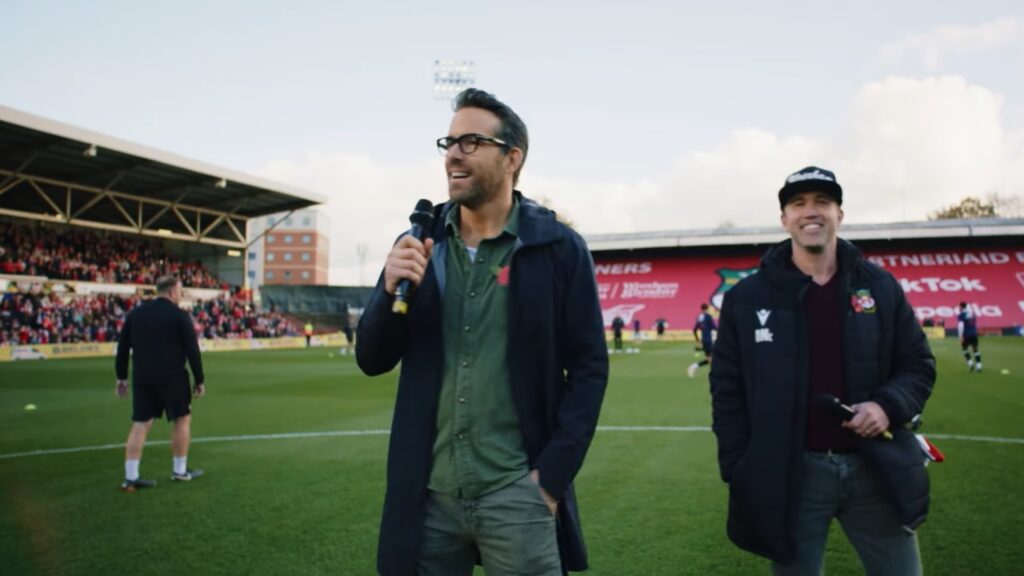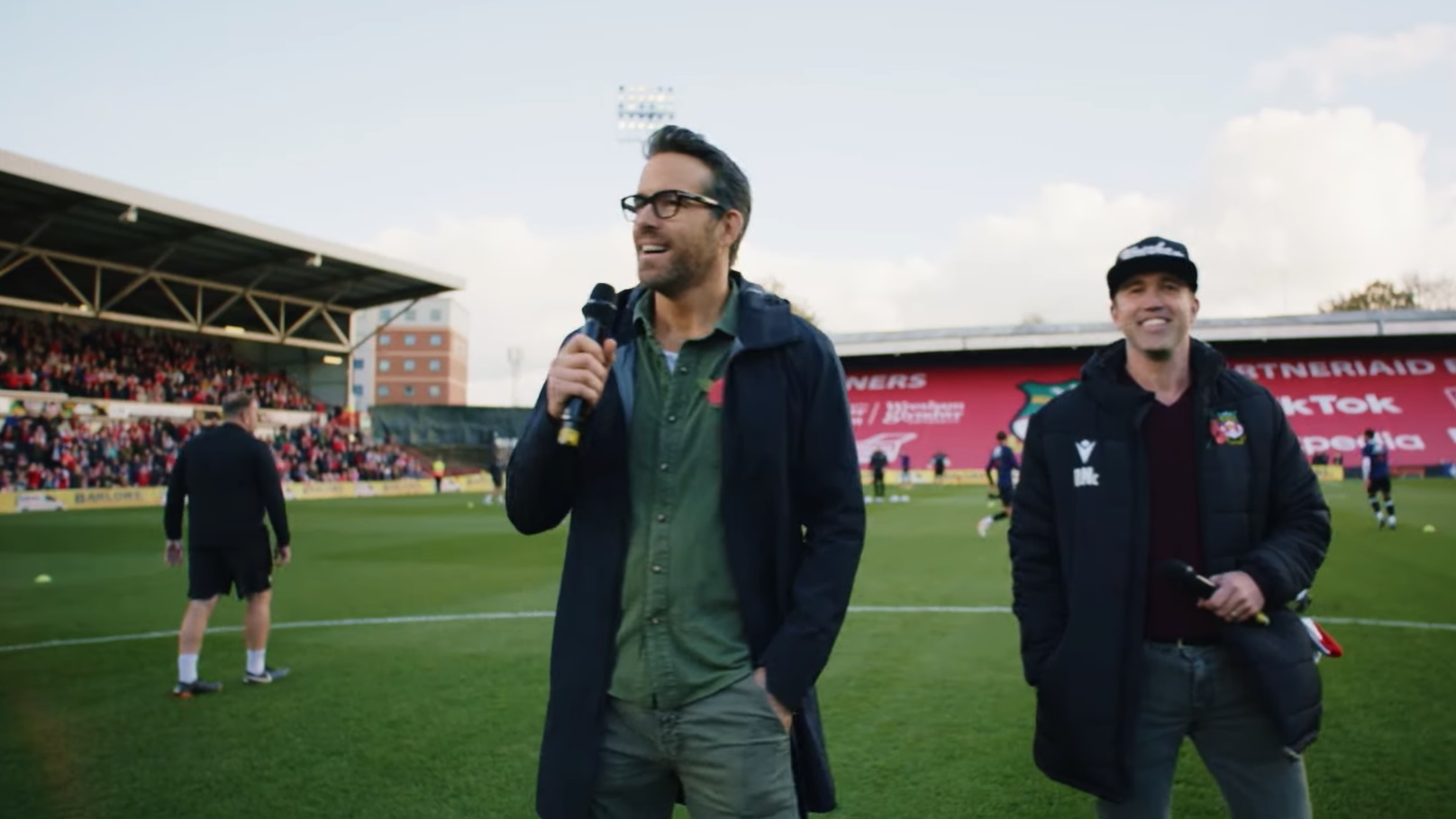
There I was, innocently stealing my friend George’s Hulu password to watch Welcome to Wrexham. In episode 9 there’s this great part when Ryan Reynolds says “I hate public speaking.” He knows that’s surprising given his profession.
He’s hardly alone in that feeling. Harrison Ford has said public speaking is “a mixed bag of terror and anxiety.” Even when a character he’s playing has to deliver a speech, he hates it.
That seems so backwards.
But it also makes sense: those guys have a lot to lose.
Think about it: how amazing a speaker would Harrison Ford need to be in order for you to mention that about him?
Harrison Ford? Now that you mention it I guess he IS Han Solo. You’re right. I’d forgotten because he gave such a good commencement address.
Much risk. Not much reward.
But for non-celebrities? It’s the opposite.
Public speaking is one of the most efficient ways to spread your message. To up your perceived value. People see a compelling presenter on stage and assume you’re great at your job, that you’re worth more money, that you’re a thought leader.
So why don’t more people enjoy it?
Because it forces us out of our comfort zone and into the world of fear. I think Ryan Reynolds and Harrison Ford know this. And, secretly, I think they know something else: fear is what propels us to new heights.
The great speakers know how to channel fear. When used well, it gives you an adrenaline rush.
Of course, when used poorly, fear overwhelms you. Perhaps you’ve seen this Michael Bay clip before?
[Short version, if you couldn’t be bothered to press play: his teleprompter goes out, he loses his nerve, announces “I’ll just wing it” to the audience and completely melts down. Winds up walking off stage. Perhaps most interestingly, the *exact* moment he announces he’s going to wing it is when you see people pull out their phones to record]
In the interest of all of my readers avoiding a Michael Bay fate (on stage, or with what you consider a quality movie), a word of advice: have a plan.
It’s natural to have moments where your confidence dips. Where you forget what to say. Happens to me every single time I present. If, in those moments, your strategy is simply “hopefully I’ll be okay,” you’re dead.
Thankfully, your buddy Mike has some tips on how to maintain your composure:
• Decide ahead of time, “when I feel fear rising I will look at ___.” That could be a friendly person. That could be a corner of the room. It just needs to not be at a stern-faced person.
• Your instinct will be to have your shoulders clench up. For your legs to move close together. To get small. When you feel fear taking over, spread your body out. Get bigger.
• Casually take a drink of water. Emphasis on casual. A dead sprint across stage is a giveaway.
• Have a story in your back pocket for if something goes wrong. Nothing brings an audience to life better than the words “I have a story”
But here’s my best tip:
Take a medium-sized breath and pause for a moment. What you were going to say is in your memory somewhere. Give it a second. It will come back. If it doesn’t, simply move on.
One of the other speakers last week (Dani Coke) did this as well as anyone I have seen. She looked at a cloud icon on her slide, said “I have no idea why I put that on the slide.”
She looked at the slide again, made a funny face, then said “well it can’t be that important” and clicked to the next slide as everyone laughed with her. It was no big deal; if anything, it was endearing. That’s what you want to happen.
But the alternative is to do what everyone tries to do – trick the audience into thinking that was supposed to happen and you’re flawless. What will actually happen is you’ll ramble way off topic, your audience will look confused and…well, if you thought you felt the fear before, it’s a lot worse when the speech doesn’t make sense at all.
Take a breath. Know that your audience wants you to succeed. And if you forget what to say, move on.
Grab your free Guide
Metaphorically speaking, a lot of us do the same when we start a speech: we make it all about ourselves. We read our resume to the audience.
Y’all. We don’t need to do that. At best that comes off as braggy; more likely it comes off as insecure.
Don't be that guy.
